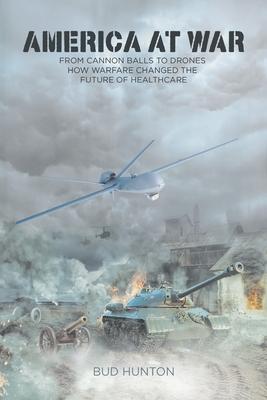Prepare to be surprised. America at War from Cannon Balls to Drones will illustrate amazing facts about the ten wars our country has survived with amazing results. Although wars are infamous for loss of life and injury, the author will provide factual information on the various ways that each war produced improvements in methodology and treatment of injuries, illness and improved the outcome for millions of Americans. New technology from each war will be discussed as well as how we dealt with the Spanish pandemic of 1918 and how it compared with our current battle with the COVID-19 virus. In the early years of war (1775-1783), medical care took a turn for the worse with the majority of soldiers dying from disease due to unsanitary conditions. In 1812, the typical soldier still died from infectious diseases such as dysentery, typhoid, and pneumonia-the number one killer at the time. Eventually, handwashing would be introduced, reducing infections and saving lives. Other early medical improvements would include anesthesia, tourniquets, amputations, prosthetics, and embalming. Amputations saved more lives than any other wartime medical procedure. Later wars will see the invention of technology such as sonar (ultrasound), radar, and thermography, to name a few.

America at War: From Cannon Balls to Drones - How Warfare Changed The Future of Healthcare
Prepare to be surprised. America at War from Cannon Balls to Drones will illustrate amazing facts about the ten wars our country has survived with amazing results. Although wars are infamous for loss of life and injury, the author will provide factual information on the various ways that each war produced improvements in methodology and treatment of injuries, illness and improved the outcome for millions of Americans. New technology from each war will be discussed as well as how we dealt with the Spanish pandemic of 1918 and how it compared with our current battle with the COVID-19 virus. In the early years of war (1775-1783), medical care took a turn for the worse with the majority of soldiers dying from disease due to unsanitary conditions. In 1812, the typical soldier still died from infectious diseases such as dysentery, typhoid, and pneumonia-the number one killer at the time. Eventually, handwashing would be introduced, reducing infections and saving lives. Other early medical improvements would include anesthesia, tourniquets, amputations, prosthetics, and embalming. Amputations saved more lives than any other wartime medical procedure. Later wars will see the invention of technology such as sonar (ultrasound), radar, and thermography, to name a few.